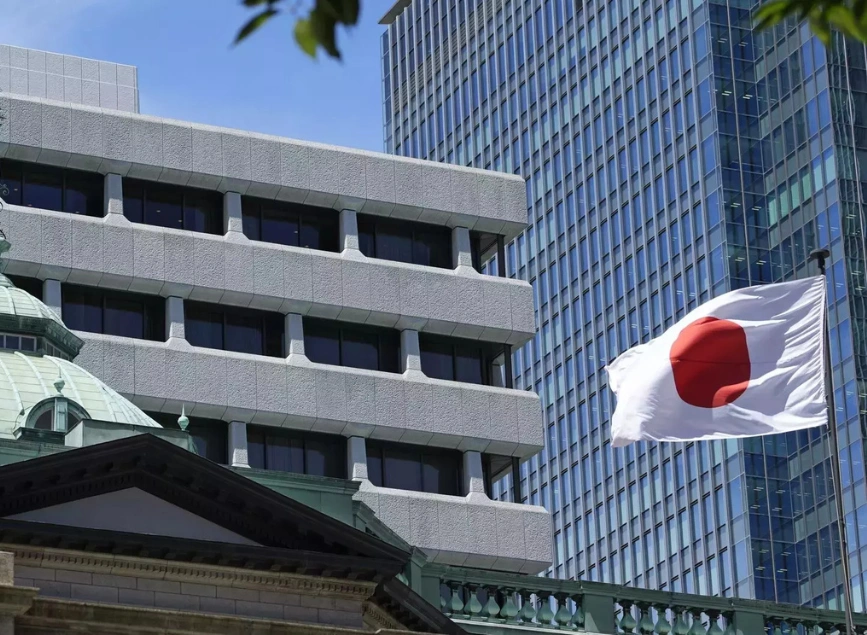
Japan’s Private Sector Growth Picks Up in January 2025
The au Jibun Bank Japan Composite Purchasing Managers’ Index (PMI) stood at 51.1 in January 2025, confirming earlier flash estimates and improving from 50.5 in December. This marks the third consecutive month of expansion in Japan’s private sector, reflecting the strongest growth since September 2024. Notably, this reading remains well above the long-term trend of 49.3, signaling a continued recovery in business activity.
Stronger Growth in Services, Weakness in Manufacturing
The service sector played a key role in January’s expansion, growing at its fastest rate in four months. In contrast, manufacturing activity continued to decline, experiencing its sharpest contraction in six months. This divergence highlights Japan’s ongoing reliance on its service economy to drive overall business growth. The increase in new orders—the strongest in five months—was primarily fueled by demand in the services sector, reinforcing its resilience despite manufacturing headwinds.
Read More : Japan Manufacturing PMI
Rising Cost Pressures and Stable Output Prices
Inflationary pressures were evident in January, with input cost inflation reaching its highest level since August 2024. This rise was mainly due to increasing costs in the service industry, which faced stronger price pressures. However, output price inflation remained stable compared to December, though it continued to be at historically high levels. Businesses are navigating these cost challenges while maintaining competitive pricing for consumers.
Positive Business Sentiment Gains Momentum
Despite challenges in manufacturing and rising costs, business confidence remained strong in January. Sentiment levels stayed above the historical average and improved compared to December, suggesting optimism about future growth. The sustained expansion in private sector activity, particularly in services, signals that Japan’s economy continues to move in a positive direction as it enters 2025.
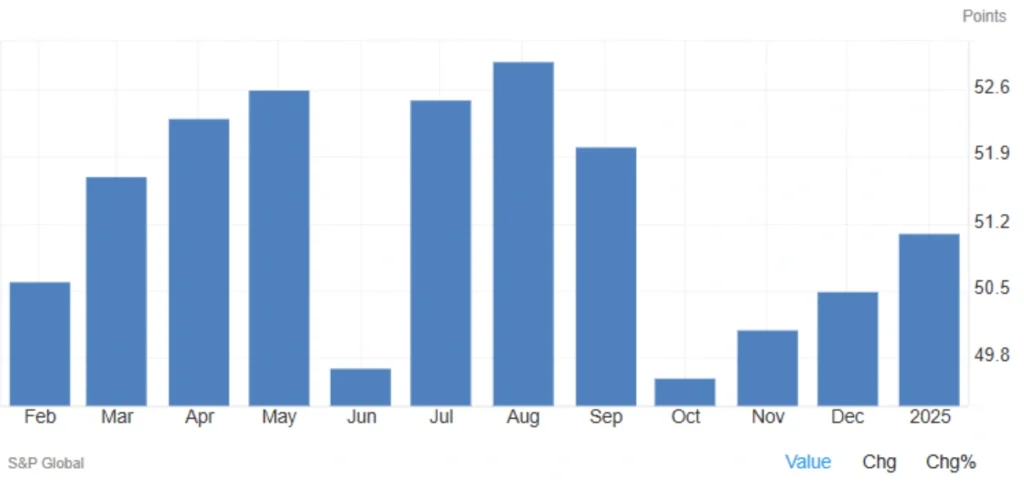
Educational Part: What is the PMI Index and Why Does It Matter?
What is the PMI Index?
The Purchasing Managers’ Index (PMI) is an indicator that reflects business activity trends in the manufacturing and services sectors. It is based on surveys conducted with purchasing managers at various companies and includes factors such as new orders, production, employment, and prices.
How is PMI Interpreted?
Above 50: Indicates economic growth.
Below 50: Suggests a decline in economic activity and a potential recession.
Around 50: Signals economic stability.
Why is Japan’s PMI Important?
A Reflection of Japan’s Economy: As the world’s third-largest economy, Japan’s PMI trends can influence financial markets and economic policies.
Impact on Global Markets: Japan is a major exporting country, and any decline in its manufacturing sector can disrupt global supply chains.
Indicator for Monetary Policy: The Bank of Japan (BoJ) may adjust its monetary policies if economic activity slows down.
Conclusion: Will Japan’s Economic Growth Continue?
While the services sector is experiencing strong growth, weakness in manufacturing could pose a challenge to Japan’s overall economic expansion. Policymakers need to carefully balance inflation control and economic growth to ensure long-term stability.
Share
Hot topics

Federal Reserve’s Challenges to Trump’s New Policies
As the Federal Reserve Open Market Committee (FOMC) prepares for its upcoming meeting, all eyes are on how the Fed will respond to Donald Trump’s latest economic policies. With the...
Read more
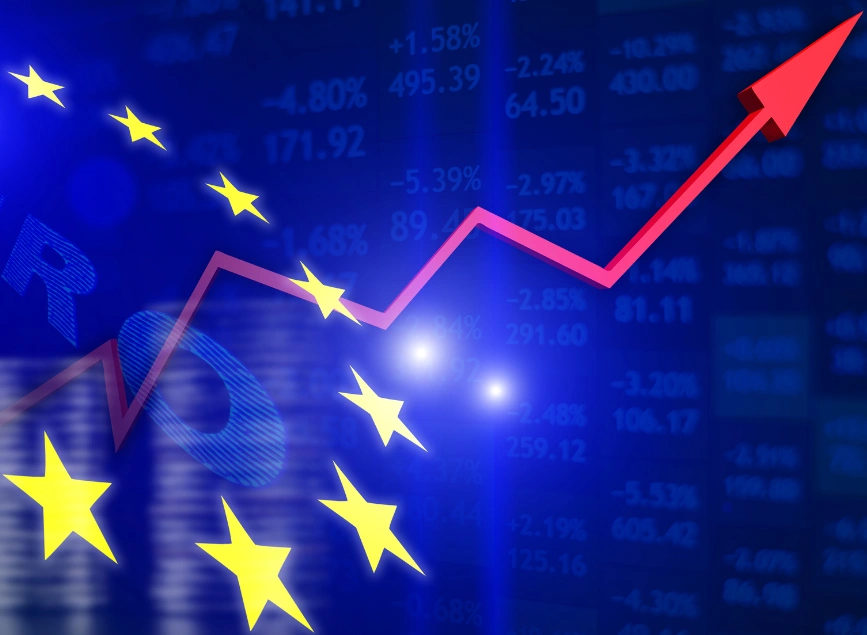
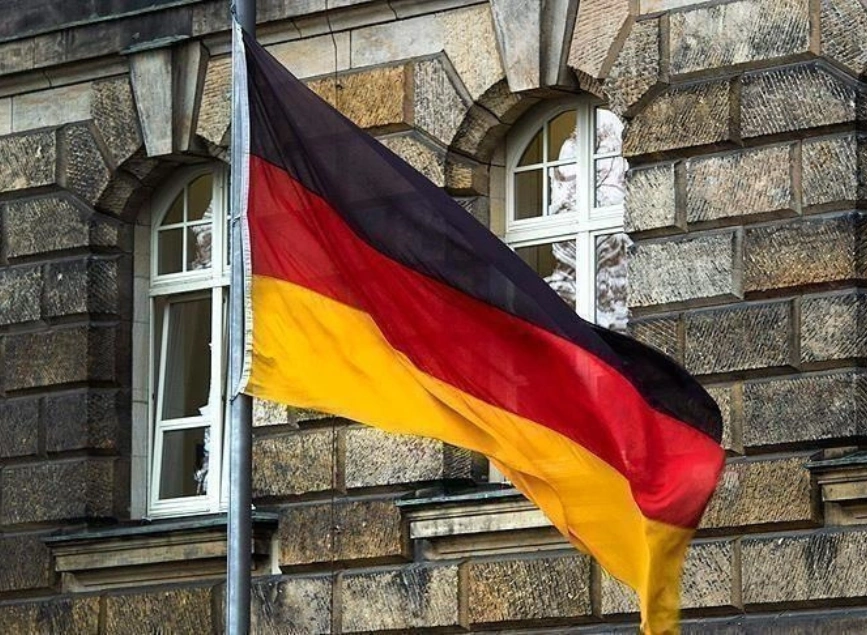
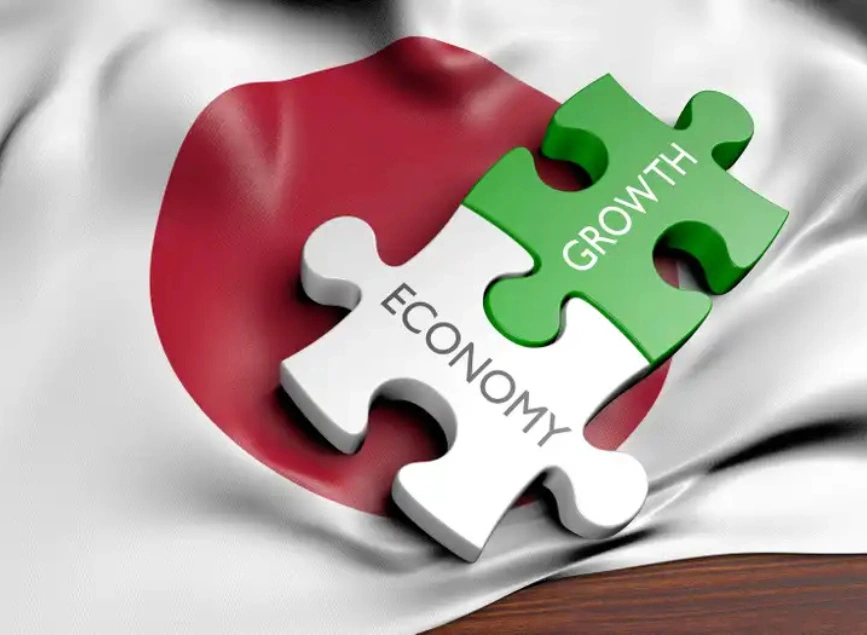

Submit comment
Your email address will not be published. Required fields are marked *